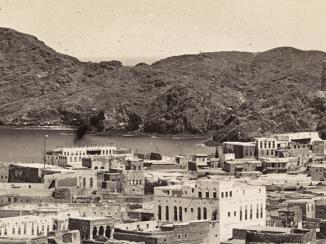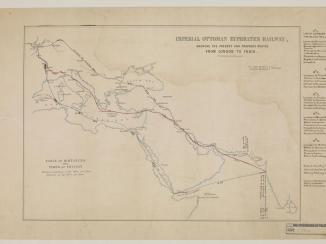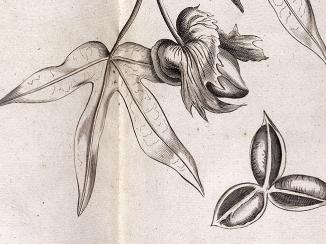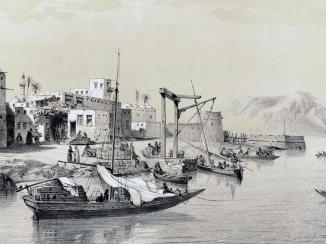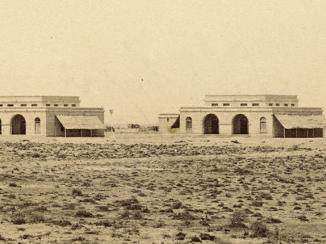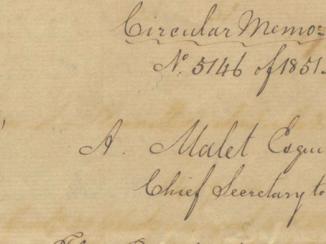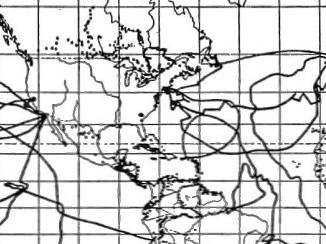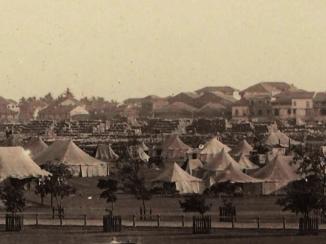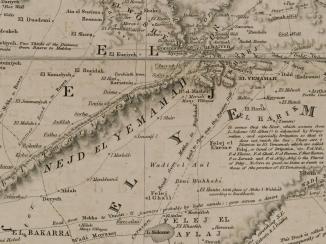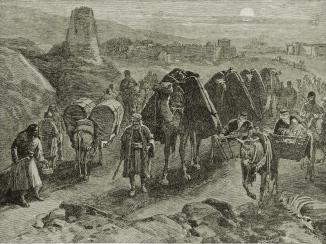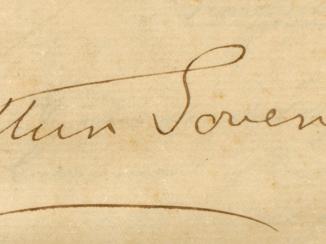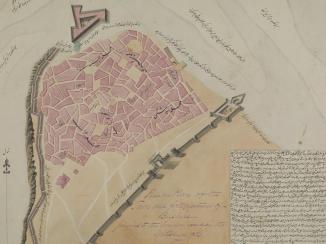Overview
Throughout his life, Sir Lewis Pelly maintained a collection of personal and official papers relating to his career and interests, which, as per his instructions, his wife, Lady Amy Pelly, donated to the India Office The department of the British Government to which the Government of India reported between 1858 and 1947. The successor to the Court of Directors. shortly before her death in 1924.
The Extent of the Collection
Covering the period 1838–92, the collection encompasses Pelly’s career in the East India Company and India Office The department of the British Government to which the Government of India reported between 1858 and 1947. The successor to the Court of Directors. , and touches on his life post-retirement, including a diverse range of personal interests such as concerns over Russia’s influence in Asia and interest in the women’s suffrage movement. The papers include personal and official correspondence, reports, journals, diaries, printed publications, certificates, his résumé and even his passports.
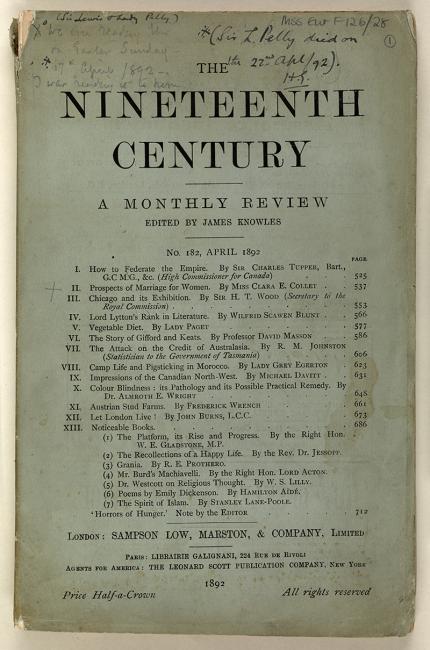
Official Records from the Political Residency, Bushire 1860s–1870s
Having served as Political Resident A senior ranking political representative (equivalent to a Consul General) from the diplomatic corps of the Government of India or one of its subordinate provincial governments, in charge of a Political Residency. in the Persian Gulf The historical term used to describe the body of water between the Arabian Peninsula and Iran. from 1862–72, Lewis Pelly was at the heart of British policy emanating from the Political Residency An office of the East India Company and, later, of the British Raj, established in the provinces and regions considered part of, or under the influence of, British India. in the Persian Gulf The historical term used to describe the body of water between the Arabian Peninsula and Iran. at Bushire during the period. His papers augment the official records of the Political Residency An office of the East India Company and, later, of the British Raj, established in the provinces and regions considered part of, or under the influence of, British India. , which, somewhat surprisingly, are rather sparse for the period 1850s–80s.
It is only because Pelly retained copies of much of his official correspondence and reports – most likely without permission to do so – that we have any records at all, for what has since been revealed to be a very significant period in the history of British Relations in the Gulf.
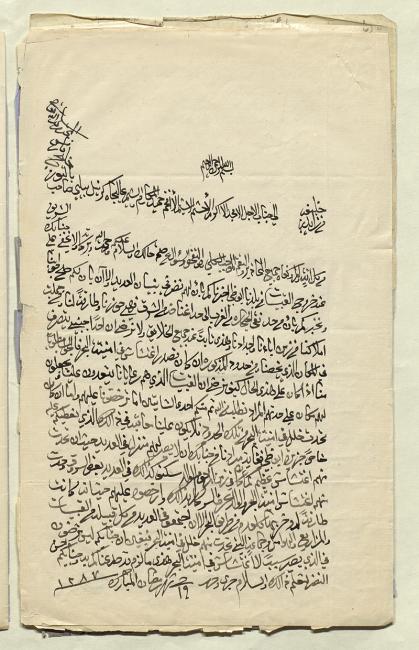
So, what happened to the official records for the period? There is no official reason why the records for this period were not retained. In The Records of the British Residency An office of the East India Company and, later, of the British Raj, established in the provinces and regions considered part of, or under the influence of, British India. and Agencies in the Persian Gulf The historical term used to describe the body of water between the Arabian Peninsula and Iran. , Penelope Tuson, referring to the period 1850s‒1880s, suggests that ‘record keeping was clearly not very organised’. This seems at odds with the information recorded in the Pelly collection, which uses clearly defined referencing systems, frequently referring back to correspondence and documents from earlier Residents, the Government of Bombay From c. 1668-1858, the East India Company’s administration in the city of Bombay [Mumbai] and western India. From 1858-1947, a subdivision of the British Raj. It was responsible for British relations with the Gulf and Red Sea regions. and the Government of India, all of whom appear to have retained multiple copies of the official records being created by the Residency An office of the East India Company and, later, of the British Raj, established in the provinces and regions considered part of, or under the influence of, British India. . It is fortunate, then, that Pelly created and maintained his personal copies of the official papers as well as his personal material.
The Original Donation and Destroyed Correspondence
The original donation to the India Office The department of the British Government to which the Government of India reported between 1858 and 1947. The successor to the Court of Directors. contained more material than the collection that exists today, because, a few weeks after she made the donation, Lady Pelly appears to have had concerns about the nature of some of both the personal and official correspondence contained within the material and how it might reflect on her husband and asked for it to be returned. Her will reveals that she instructed that these letters – and other papers of her husband’s, which she had retained – be destroyed in order to ensure permanent protection of his reputation.
Still, regardless of the papers that were destroyed, a great number of illuminating records are accessible due to their place in the British Library’s collections. The collection provides a more personal insight into the life of a British Government official in the Gulf, showing what his role really entailed, what his lifestyle was like and the friendships he developed. However, it is also Pelly’s foresight in keeping many official records, including correspondence, dating from his time as Political Resident A senior ranking political representative (equivalent to a Consul General) from the diplomatic corps of the Government of India or one of its subordinate provincial governments, in charge of a Political Residency. in the Persian Gulf The historical term used to describe the body of water between the Arabian Peninsula and Iran. that is now a great benefit to historians of the period and those interested in the history of the Gulf.

